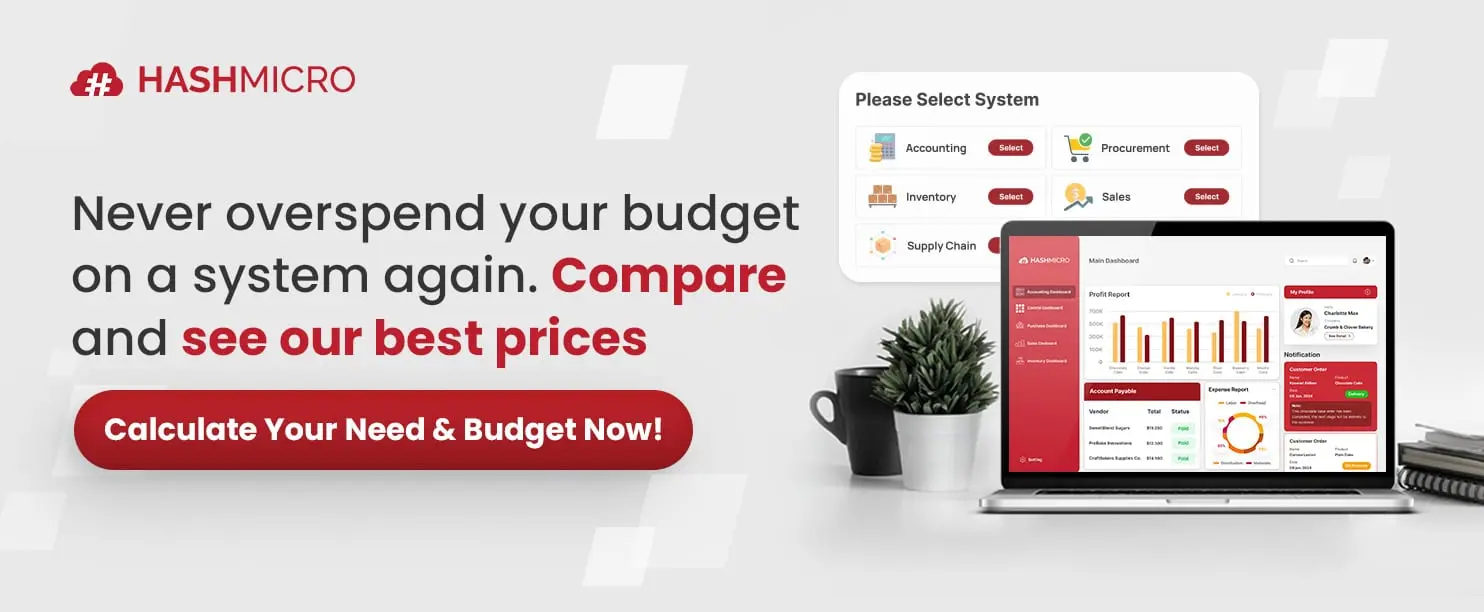One of the most critical sectors of Malaysia’s economy is the food manufacturing sector. It involves several industries, including the production of food items and the processing of raw materials. In addition to promoting food security, this sector provides Malaysians with numerous job opportunities.
The study found that the challenges faced by traditional food manufacturing, such as resource-intensive processes, waste generation, and inconsistent product quality, demand innovative solutions to achieve sustainability goals. AI-driven transformation in food manufacturing emerged to address these issues by optimizing processes, enhancing quality, and reducing environmental impacts.
This article examines the food manufacturing environment in Malaysia, including its challenges and potential solutions. Continue reading this article to discover how businesses can boost productivity and stay competitive by leveraging technology, such as HashMicro Manufacturing Software .You can also explore its features through a free demo.
Key Takeaways
|
Overview of Food Manufacturing in Malaysia
Malaysia has a significant food production sector that encompasses various subsectors, including dairy, snacks, beverages, and processed foods. This industry is vital to the economy, as it generates significant employment opportunities and makes a substantial contribution to both domestic and international markets.
However, the sector faces numerous obstacles, including fierce rivalry, rising operating expenses, and the need for digital transformation, particularly among small and medium-sized enterprises. For the industry to continue succeeding and growing sustainably, these challenges must be addressed.
Importance of Efficiency in Food Manufacturing
The food manufacturing company is one of the largest industries in Malaysia and Southeast Asia, generating numerous jobs and making a significant contribution to economic growth. It has both cultural and economic influence, as it promotes the nation’s diverse regional cuisines and rich culinary traditions.
The food manufacturing company is crucial to the country’s economy, generating substantial income and employment. Businesses must focus on enhancing productivity and streamlining processes to remain competitive and meet increasing demand.
Businesses can reduce administrative work and concentrate more resources on innovation and expansion by increasing operational efficiency. As a result, the sector may continue to promote economic resilience, sustainability, and long-term growth in Malaysia.
Setting up a manufacturing ERP system for the company is one of the most effective ways to do this. Discover the top food and beverage ERP and food manufacturing software to improve the operational effectiveness of your company.
Key Aspects of Food Manufacturing
Food manufacturing involves more than just turning raw ingredients into packaged goods. To maintain safety, quality, and efficiency, businesses must manage a variety of interconnected processes. The following key areas highlight what it takes to run a successful food production operation.
1. Food safety and quality control
Food manufacturing requires strict hygiene, sanitation, and allergen protocols to prevent contamination. Quality control ensures each product meets standards for taste, texture, and safety. Critical control points help reduce risks during production.
2. Efficient processing and production
Advanced machinery supports consistent mixing, cooking, and packaging in food manufacturing. Automation improves precision and speed, while preservation methods like freezing and pasteurization extend shelf life and maintain product safety.
3. Facility design and temperature control
Clean, well-organized facilities are key to smooth food manufacturing operations. Proper layout and airflow reduce contamination. Temperature control during storage and transport prevents spoilage and supports safe food handling throughout the process.
4. Logistics and sustainability
Strategic facility placement helps food manufacturers reduce delivery times and access raw materials faster. Sustainable practices like proper waste disposal and clean infrastructure support long-term compliance and environmental responsibility.
Challenges in Malaysia’s Food Manufacturing Industry

- Competition from imported foods: Local products face tough competition from cheaper and sometimes higher-quality imports.
- Lack of investment in R&D: The industry’s slow investment in research and development limits innovation and competitiveness.
- Poor infrastructure: Inefficient transportation and storage increase costs and disrupt supply chains, affecting global competitiveness.
- Stringent regulations: While necessary, strict food safety and quality regulations can be expensive and time-consuming to comply with.
- Climate change: Extreme weather events negatively impact crop yields, raising production costs and affecting supply chains.
By investing in facilities such as manufacturing warehouses, infrastructure, and sustainable practices, along with continued government support, the sector can overcome these challenges and thrive in the global market.
Innovative Solutions for the Food Manufacturing Industry
Businesses can overcome current challenges and position themselves for long-term growth by embracing technology-driven solutions. The sector can better support the economy and satisfy rising customer needs with innovation and digital transformation.
Businesses could implement innovative solutions like the following to increase efficiency further:
- Prioritize food safety: Ensure hygiene and prevent contamination by following strict cleaning schedules and food safety protocols.
- Develop a production strategy: Long-term plans, informed by market analysis, help businesses stay responsive to shifting consumer needs.
- Automate manufacturing: Automation cuts costs, boosts traceability, and ensures production meets industry standards efficiently.
- Balance budgets and margins: By investing in areas that maximize product margins, while conducting regular risk assessments to sustain profitability.
- Optimize the supply chain: Improve inventory and transportation management to reduce waste and lower costs by forecasting demand more accurately.
If you’re interested in exploring an AI-driven system and want to see the potential benefits it could bring to your company, click the banner below to view HashMicro’s pricing scheme.

Boosting Efficiency and Growth with HasMicro Food Manufacturing
An adequate food manufacturing company depends on efficiency, especially given the current operating challenges. These problems are addressed by HashMicro’s food manufacturing system, which provides food producers with a single platform to optimize workflows and increase output.
HashMicro’s manufacturing ERP software helps reduce waste by streamlining production and sourcing processes. It also enhances accountability and ensures compliance with food safety regulations by tracking ingredients from farm to table, increasing traceability throughout the food production process.
Here are the key features of HashMicro food manufacturing:
- Comprehensive Bill of Materials: Get precise costs of components, spare parts and raw materials of your food production.
- Accounting for manufacturing: Automatically record all production and raw material procurement activities in real time.
- Comparing plans vs production actualization: Make the right strategy to increase food production with comparison reports that can evaluate actual and planned production.
- Warehouse management system: Prevent expired and dead-stock products by monitoring warehouse inventory capacity to prioritize on-hand stocks.
- ERP and IoT integration: Monitor the production capacity of each machine accurately in real-time, directly to your manufacturing software dashboard.
With all these features, how exactly does HashMicro enhance food manufacturing?
- Waste reduction: Streamlining inventory management prevents overstocking and minimizes wastage by accurately forecasting demand and tracking expiration dates.
- Improved traceability: Robust tracking systems ensure compliance with food safety regulations by monitoring the entire supply chain from sourcing to delivery.
- Automation and efficiency: By automating routine tasks and implementing quality checks, companies can reduce errors and boost productivity, allowing staff to focus on higher-value activities.
- Real-time data access: Access to real-time data enables better decision-making, optimizes production schedules, manages resources efficiently, and increases profitability.
- Seamless integration: An ERP system integrates various functions, such as sales, inventory, and production, providing a unified platform for improved communication, accurate reporting, and real-time decision-making.
Conclusion
The Malaysian economy relies heavily on the food manufacturing sector, which supports national food security and generates employment opportunities. Therefore, the industry must adopt and continually enhance technology to stimulate growth and maintain competitiveness.
HashMicro’s food manufacturing software offers specialized solutions for supply chain, production, and inventory management in the food industry. HashMicro enables companies to enhance efficiency, streamline processes, and comply with stringent food safety regulations by providing real-time data insights.
Additionally, HashMicro offers a free demo, allowing businesses to test technologies for sustainable growth and workflow improvement. Click the banner below and try our free demo now!

FAQ About Food Manufacturing
-
What is the meaning of food manufacturing?
Food manufacturing is the process of converting raw ingredients into consumable food products through methods like processing, cooking, and packaging on a large scale.
-
What is the basic food manufacturing process?
The basic process includes sourcing raw ingredients, processing them into food, packaging the final product, and ensuring quality control.
-
What is considered a food manufacturer?
A food manufacturer is a business that produces, processes, and packages food products for distribution, often involving large-scale operations.

























